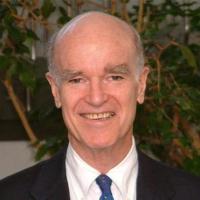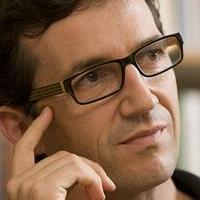Media, Philanthropy & Democracy
THE JOHN S. AND JAMES L. KNIGHT FOUNDATION DOCTORAL FELLOWSHIP ON PHILANTHROPY, MEDIA AND DEMOCRACY
The Knight doctoral fellowship is offered by the Center for Strategic Philanthropy and Civil Society and the DeWitt Wallace Center for Media and Democracy.
There has long been a dearth of research and writing on the media’s coverage of foundations, nonprofits, and individual donors – and in particular their impact on society, policy, and democracy.
Likewise, there is virtually no thoughtful research and writing on how mainstream and new media discourse might best explore the role, successes, and shortcomings of the philanthropic enterprise.
Journalists and struggling media enterprises are increasingly turning to private donors to provide an alternative business model for news gathering and analysis.
This fellowship is designed to further research and inform practice on questions at the intersection of the media, philanthropy, and democracy in the United States. The fellowship is aimed at producing a new generation of scholars who conduct original research on any important questions related to philanthropy and the media and to translate their findings for media and philanthropy, policymakers, and scholars.
DETAILS
- Qualified applicants should first be accepted for admission to Sanford.
- Submit a letter of application stating the reasons for your interest, along with a CV, a recent writing sample, and three letters of reference via email to Professor Joel L. Fleishman, Director of the Center for Strategic Philanthropy and Civil Society.
- Applications for the fellowship received by May 1 will be assured full consideration.
- Term: 1.5-2 years
The grant supporting the fellowship is funded by the Knight Foundation.
for more Information

Joel L. Fleishman
Professor of Law
A.B. 1955, J.D. 1959, M.A. (Drama) 1959, University of North Carolina; LL.M. 1960, Yale University.
Professor Fleishman is a native of Fayetteville, North Carolina. He began his career in 1960 as assistant to the director of the Walter E. Meyer Research Institute of Law at Yale. From 1961 to 1965, he served as legal assistant to the governor of North Carolina. He then returned to Yale, first as director of the Yale Summer High School, and then as associate provost for Urban Studies and Programs. In 1969, he became associate chairman of the Center for the Study of the City and Its Environment and associate director of the Institute of Social Science at Yale. In 1971, he came to Duke as a member of the law faculty and as director of the Institute of Policy Sciences and Public Affairs, now the Sanford School of Public Policy, in which position he served until 1983. He is now Professor of Law and Public Policy, and Director of the Heyman Center on Ethics, Public Policy and the Professions. He also directs the Duke Foundation Research Program. His principal writings deal with legal regulation and financing of political activities as well as the regulation of not-for-profit organizations. His book, The Foundation: A Great American Secret — How Private Money is Changing the World, was published in January, 2007 by Public Affairs Books. He is now serving as co-chair of Independent Sector's Committee on the Self-Regulation of Nonprofit Organizations.
MD/PHD Program
Medical Scientist Training Program
Our PhD program is also open to students pursuing joint degrees in medicine, through Duke’ s Medical Scientist Training Program. This highly competitive program seeks to train leaders in academic medicine, who will combine clinical and research careers.
Successful applicants receive funding to pay for both their medical school and PhD training.
Information on how to apply to the MD/PhD program can be found here.
For More Information

Peter A Ubel
Madge and Dennis T. McLawhorn University Distinguished Professor
I am a physician and behavioral scientist at Duke University. My research and writing explores the quirks in human nature that influence our lives — the mixture of rational and irrational forces that affect our health, our happiness and the way our society functions. (What fun would it be to tackle just the easy problems?)
I am currently exploring controversial issues about the role of values and preferences in health care decision making, from decisions at the bedside to policy decisions. I use the tools of decision psychology and behavioral economics to explore topics like informed consent, shared decision making and health care spending. My books include Pricing Life (MIT Press 2000) and Free Market Madness (Harvard Business Press, 2009). My newest book, Critical Decisions (HarperCollins), came out in September of 2012, and explores the challenges of shared decision making between doctors and patients.
Civil Society
The Joel L. Fleishman Civil Society Ph.D. Fellowship
The Duke Sanford School of Public Policy offers the Joel L. Fleishman Civil Society Ph.D. Fellowship on the basis of merit to qualified public policy graduate students whose research focuses on the role of civil society and the capacity of nongovernmental organizations and their leaders to play significant public policy roles. The goal of the fellowship is to prepare graduates to work in domestic and international public agencies, universities, research organizations, and policy consulting firms.
The Public Policy Ph.D. Program at Duke provides an interdisciplinary balance in disciplines such as economics, political science, psychology, and sociology. The relatively low number of students who matriculate each year (typically six to eight) enables each to receive individual faculty mentoring in courses and in research.
The fellowship was established in honor of Joel L. Fleishman, J.D., M.A. (University of North Carolina), LL.M. (Yale University), Professor of Law and Public Policy at Duke and Director of the Center for Strategic Philanthropy and Civil Society. Professor Fleishman came to Duke in 1971 as a member of the law faculty and as founding director of the Institute of Policy Sciences and Public Affairs, now the Sanford School of Public Policy.
His principal scholarship deals with philanthropy and charity in the United States and with legal regulation and financing of not-for-profit organizations. He is the author of the book, The Foundation: A Great American Secret — How Private Money is Changing the World (PublicAffairs Books, 2007). He is also the co-author with Thomas Tierney of Give Smart: Philanthropy That Gets Results (PublicAffairs Books, 2012). His third book on philanthropy, Putting Your Money to Work: Philanthropy Now or Investment for the Future is scheduled for publication in September 2017.
for more Information
Jason DeRousie
Assistant Dean for Academic Programs & Student Affairs
Jason DeRousie comes to the Sanford School after 11 years at NC State University, the last six of which were spent overseeing curriculum, academic programs, and scheduling for the Poole College of Management. He has been working in higher education for over 20 years and has professional experience in admissions, advising, academic and co-curricular assessment, and data analysis. In Sanford, Jason leads the Academic Programs and Student Affairs team that supports degree programs and public policy students at all levels – undergraduate to PhD.
A native of Columbus, Ohio. Jason graduated with an MPP from Sanford back when it was still an Institute. He also holds a Ph.D. in Higher Education from Penn State University and a Bachelor’s degree in political science from Kenyon College. Jason’s research interests have primarily focused on higher education policy, access and equity, and student success. He currently resides in Durham with his wife and three daughters.
